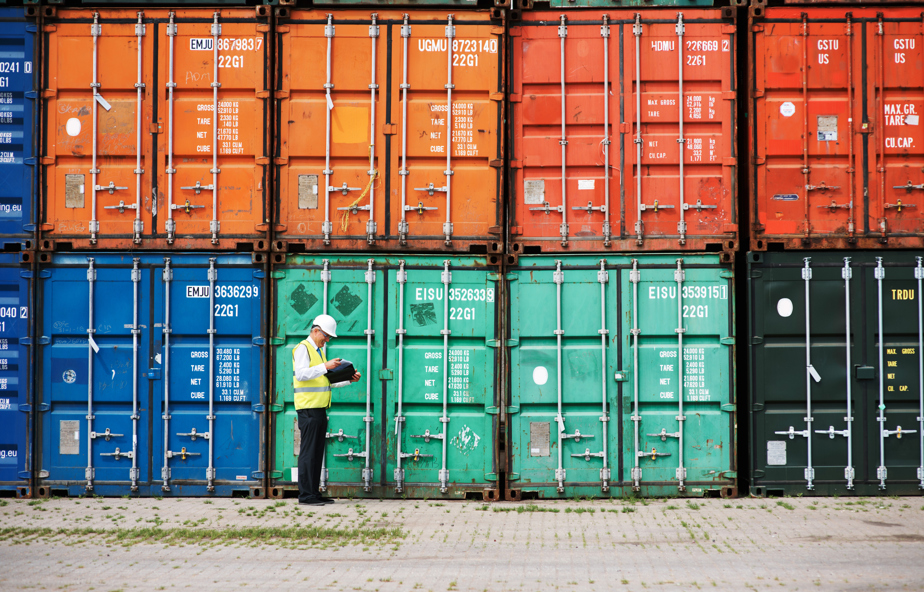Cargo carriers have limited liability for the cargos they carry, so there’s not much need for carriers to insure the goods they transport, right?
Wrong. Cargo and transport liability in Australia is covered by bailee’s liability laws, which cover the responsibilities of bailors and bailees.
A bailor is the owner of a property or a cargo, while a bailee is someone who takes custody of the property but doesn’t own it. Examples include a dry cleaner taking custody of your clothes, a warehouse storing your goods or a transport company moving your cargo.
Who’s liable for what?
A bailee (such as a trucking company) has a duty of ‘ordinary care’ for the goods they’ve taken custody of. So if you know a cargo should be refrigerated, or protected against extreme heat, you must provide those protections. A bailee isn’t liable for ‘Acts of God’ or other extraordinary events, such as a not-at-fault traffic accident, bushfire, or the like.
With that said, transport operators may have greater liability than other bailees, and are often considered fully liable for the cargos they carry in many cases.
So what happens if you’re carrying a load of goods and someone else runs into your truck, damaging the cargo?
“The owner of the goods insures the goods in transit and would then be entitled to indemnity from their own insurer. That insurer may or may not be able to recover costs from the at-fault third-party. In the event the third-party is uninsured or their policy doesn’t respond, the owner of the goods ultimately doesn’t want their insurer or their claims history to have to bear the cost when someone else is responsible,” says Alex Sawtell, NTI’s National Liability Product Manager.
That’s why carriers are wise to have a policy to cover customer’s cargo, not just for those acts for which they are liable, but for any event that could cause loss or damage. . “A carrier’s policy might have accidental cover – what might be called ‘all risks cover’ – and the carrier relies on it to provide indemnity in the event of a loss, whether or not they’re even liable,” Alex explains.
Relationships matter
The reason why a carrier might want to insure other people’s goods is simple: goodwill. “When you have important customers, you want to protect that relationship,” says David Brando, NTI’s National Carriers Product Manager. “When something goes wrong, a carrier will want to look after their customer and have their own insurance pay for it.
“This ‘all risks’ or ‘accidental damage’ cover can protect that customer goodwill, so they’re not left out of pocket or having to deal with their own insurance company (or paying out of their own pocket if uninsured). You can maintain a strong working relationship with them.”
David says it’s pretty common for big customers – such as national food, furniture, fashion and technology companies – to require their transport partners to cover liabilities for goods in transit.
“For most national or multinational companies there would usually be a transport contract in place between the carrier and the owner of the goods. Typically it would say the carrier is responsible for loss of or damage to goods while in their care .”
Make sure your contracts are fair and your insurance is good
It’s also important to be aware of unfair contract terms. It’s a big topic, but essentially if you’re offered a contract that you feel is unreasonable, or that the customer gives to you on a take-it-or-leave-it basis, it might be unfair (and therefore legally unenforceable). This goes both ways and could also apply in cases where you attempt to reply upon your own trading terms along the lines of ‘all care, no responsibility’ – in defence against a party contracting your services. It may be deemed unfair for you to try to wholly contract out of liability for an event you’d otherwise have been responsible for.
While you’re unlikely to need it if your operations are domestic only, you may also wish to consider any force majeure clauses (or lack thereof) in any contracts you enter into. Force majeure (French for ‘greater force’) is often an aspect of most major/international contracts and serves to exclude liability for ‘Acts of God’ – natural events such as floods and earthquakes that are nobody’s fault. Force majeure clauses often also extend exclusions to ‘Acts of Man’ such as strikes, civil unrest and war. So if a sudden, unexpected earthquake or political revolution damages or destroys the cargo you’re carrying, you won’t necessarily be held liable.
The best advice we can give for understanding your obligations to your customers principals, and particularly in respect of unfair contracts, ‘Acts of God’ and force majeure is to speak with your insurance broker or – better yet – your lawyer. You don’t want to get caught out by a bad contract or an unexpected event when a few enquiries could have saved you the drama.
